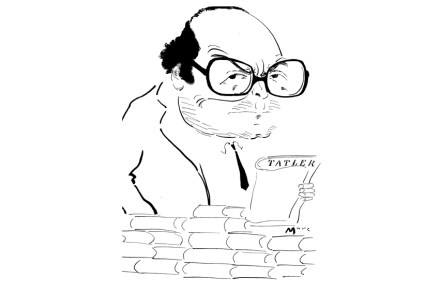‘A world dying of ugliness’
Some writers’ lives are estimable, some enviable, some exemplary. And some send a shudder of gratitude down the spine that this life happened to somebody else. It isn’t necessarily about success or acclaim — most rational people would very much prefer to have had Rimbaud’s life rather than Somerset Maugham’s. But sometimes it is. In the ranks of Mephistophelean terror, there are few more frightening stories than the life of the Austrian novelist Joseph Roth. Everything went wrong for him, and it must have been simply appalling to have had to live within that head, with those thoughts. That he is also a great novelist merely adds to the horror











